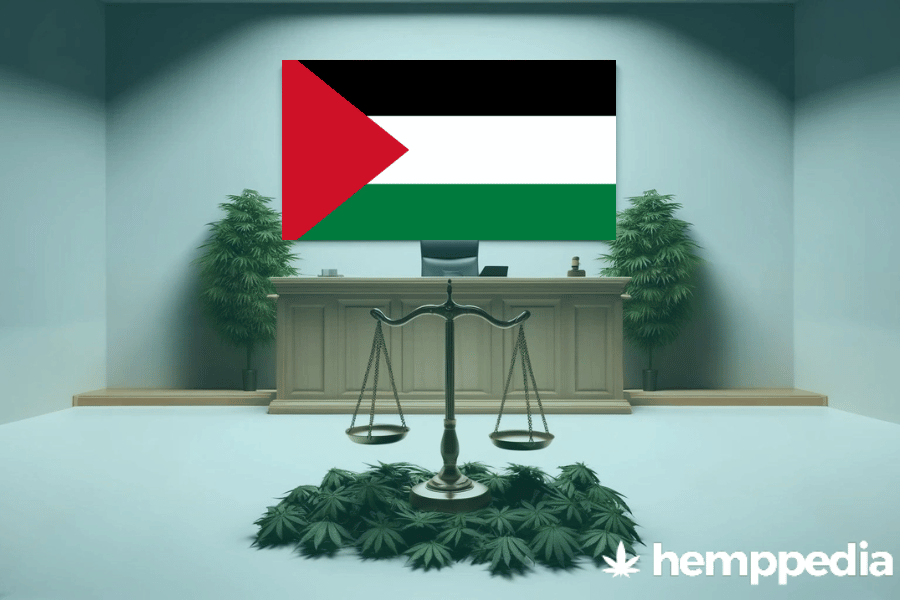TL;DR
The legal situation of cannabidiol (CBD) in the State of Palestine currently falls into a legal grey area due to the lack of specific laws and regulations regarding CBD products. This post aims to provide an in-depth exploration of the current state of affairs regarding CBD in Palestine.
Summary of CBD’s Legal Status
| Possession | Use | Cultivation | Sales |
|---|---|---|---|
| Illegal | Illegal | No Specific Laws | No Specific Laws |
Overview of CBD Legislation
Introduction
CBD, or cannabidiol, is one of many cannabinoids derived from both the hemp and marijuana plants, members of the cannabis family. Unlike tetrahydrocannabinol (THC), another well-known cannabinoid, CBD does not induce a psychoactive effect or get you ‘high’.
Legal Landscape
At a global level, CBD’s legal status varies significantly, with different nations adopting vastly different legal approaches towards CBD and other cannabinoids extracted from cannabis. Unfortunately, specific laws or regulations relating to CBD are not currently present in Palestine.
Historical Context
Traditionally, the possession and use of cannabis in Palestine have been illegal, with harsh penalties for those caught in the act. This legal precedent could potentially extend to CBD, despite its lack of psychoactive properties. Nevertheless, the legislation explicitly mentioning CBD does not currently exist within Palestinian law.
Possession, Use, Cultivation, and Sales
Considering the absence of clear regulations about CBD, it’s crucial to approach the topic with caution. There aren’t any designated places registered for legal purchase or consumption of CBD products within the State of Palestine. Also, there’s a lack of clear guidelines regarding the cultivation of hemp for CBD production, which further complicates the matter.
Enforcement and Penalties
Given the historically severe penalties for cannabis-related infractions in Palestine, it is fair to assume similar consequences may extend toward CBD related violations, although this is not explicitly stated in law.
Despite the absence of specific laws about CBD, its classification under cannabis, which is illegal in the State of Palestine, could lead to penalties for those in possession of CBD.
Comparative Analysis
Compared to other regions where CBD possession and use are legalized, the State of Palestine takes a more conservative approach. Many countries globally are differentiating between the psychoactive THC and non-psychoactive CBD, allowing for the sale and use of CBD products. Unfortunately, specific laws regarding CBD are not currently present in Palestine.
Conclusion
The legal situation of CBD in the State of Palestine is uncertain due to the lack of specific laws and regulations. This would require users and potential cultivators to exercise utmost caution to avoid legal complications. It is always a good idea for individuals to seek legal advice before engaging with CBD in any form in Palestinian territory. Until clear laws are enacted, the legal status of CBD in the State of Palestine remains uncertain.





